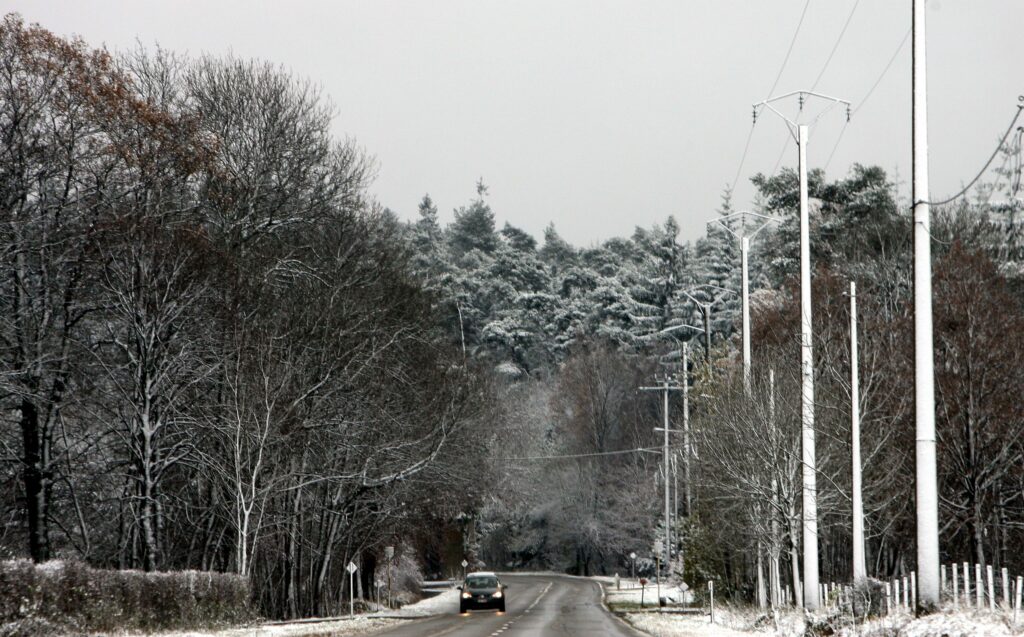Snow is expected to fall in certain parts of the country on Thursday morning. Because this could lead to icy roads, the Royal Meteorological Institute (RMI) has issued a code yellow for slipperiness.
Melting snow or snow is expected to fall in the southeast on Thursday until around noon. Similar conditions are also possible in other parts of the country, including in the centre.
"Above 300 metres, a snow layer of 1 to 6 cm may form in 6 hours, or very locally more at the Ardennes heights," it noted. As roads could get slippery and result in dangerous situations on the roads, the RMI has issued a code yellow warning in the provinces of Liège, Namur and Luxembourg until noon. The Walloon traffic authorities and road police also issued a warning for potential slippery roads on Wednesday.
In the afternoon, the precipitation zone will leave Belgium towards France and Germany. After that, it will be alternately cloudy everywhere with some showers from the North Sea, some of which could be wintry. In the High Ardennes, low clouds could obstruct visibility.
Maximum temperatures will be between 0°C in the Ardennes (where the snow cover will thicken by several centimetres) and 7°C at the sea. However, at sea, winds could become quite strong.
Forecast for the coming days
During Thursday night, some ice patches in the centre and east may continue to cause slipperiness.
Friday morning, it will freeze in many places and local ice patches are again expected, as well as more snowfall in the Ardennes, in the south. During the day, it will become cloudy everywhere, accompanied by some wintry showers, especially over the northeast.
Saturday morning will be freezing in most areas, and in the south, the maximum temperatures are below zero. Saturday night there may be (melting) snow or possibly freezing rain. Later, most of the precipitation will turn to rain.
Temperatures will then increase by around 10°C on Sunday, to maximum temperatures of 12°C in the centre of the country and 7°C in the south. Early in the morning, wintry precipitation may still fall over the north and northeast.

